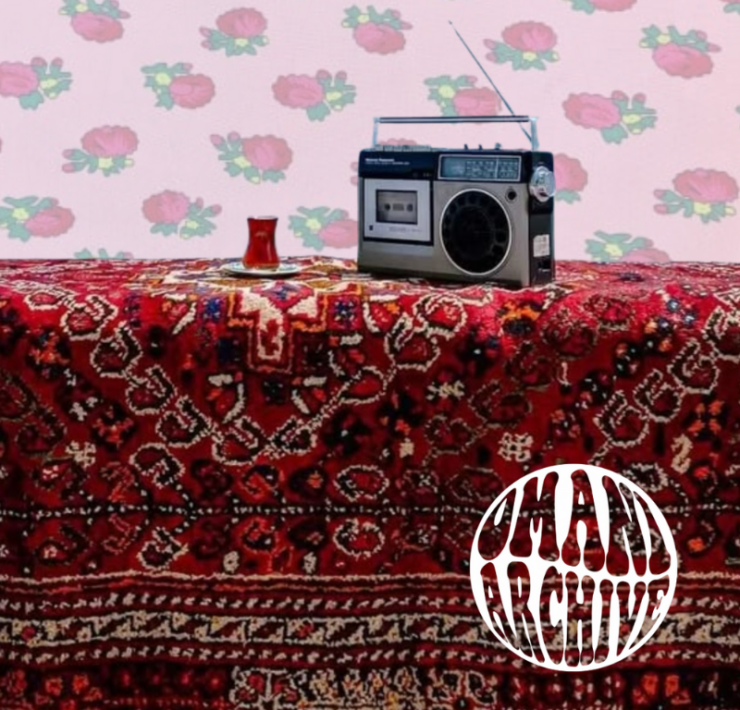Learning Arabic is incredibly rewarding, but no one will deny that it can be challenging! Whether you are a beginner learning Modern Standard Arabic or an advanced student working on your dialect skills, most Arabic students have experienced the struggle to find the perfect resources, keep up the motivation to practise, and to maximise their progress. But we are here to help – set yourself up for success and learn smarter, not harder with our top tips and favourite tools for Arabic language learning!
This article does not include any affiliate links.
1. Find your motivation!
The great news is that the first step to incredible progress with your Arabic involves absolutely zero new vocabulary or grammar drills. All it requires is a little self-reflection, some honesty, and a chat with, you guessed it, yourself!
Figuring out your own unique motivation to learn Arabic is the foundational step that will impact your progress with the language more than anything else. You can have the perfect vocabulary system set up and the best textbooks in the world, but if you aren’t clear on your personal reasons for learning Arabic, you’ll find progress very slow.
Whether it’s your career advancement, your love for Arabic poetry, a desire to to communicate with family and friends, or maybe even a strong competitive streak, don’t underestimate the power of getting clear on your own personal mix of motivations for learning. Once you have them figured out, keep them front and centre in your mind as you learn and watch as they fuel your progress!

2. Set a goal you can’t renege on.
One of the best ways to supercharge your learning is to have a clear goal to work towards, with a finishing line in sight. Take some time to design a goal which challenges you and has a deadline, that’s important enough to really spur on your studies. Perhaps book a trip to an Arabic-speaking country, agree to give that presentation at work in Arabic, or find an accountability partner and make an agreement to complete a challenge together by the end of the year (forfeits are optional – we take no responsibility for the stakes you set!).
Above all, make sure that your goal is S.M.A.R.T. – specific, measurable, achievable, realistic and time-bound. For help setting goals and following through on them, take a look at our Arabic Study Planner specifically designed for Arabic students – whether you’re self-studying or learning in a formal course!

3. Language immersion.
Immersion, immersion, immersion. Sounds impossible if you’re not able to just up sticks and move to the Middle East, right? We don’t think so! Immersion isn’t an all-or-nothing game, and there are tons of ways to include more Arabic in your daily life, wherever you are in the world.
Imagine a student who diligently attends lessons, makes flashcards with all the new vocabulary they learn and practices conjugations, then puts their textbooks away and gets on with the rest of their day. Now imagine another student, who on top of their formal ‘studying time’ listens to the radio in Arabic as they make their breakfast, plugs into a podcast during their commute, messages with a language buddy a few times a week, and picks a movie in Arabic on Netflix every once in a while. Neither of these students is doing language immersion in the strict, traditional sense, but who do you think will see the most improvement in their Arabic? Do what you can to surround yourself with Arabic and watch as you progress in leaps and bounds!
For some inspiration on how to include more Arabic in your daily life, no matter where you live, take a look at our *free* Modern Standard Arabic and Levantine Arabic Immersion Itineraries.
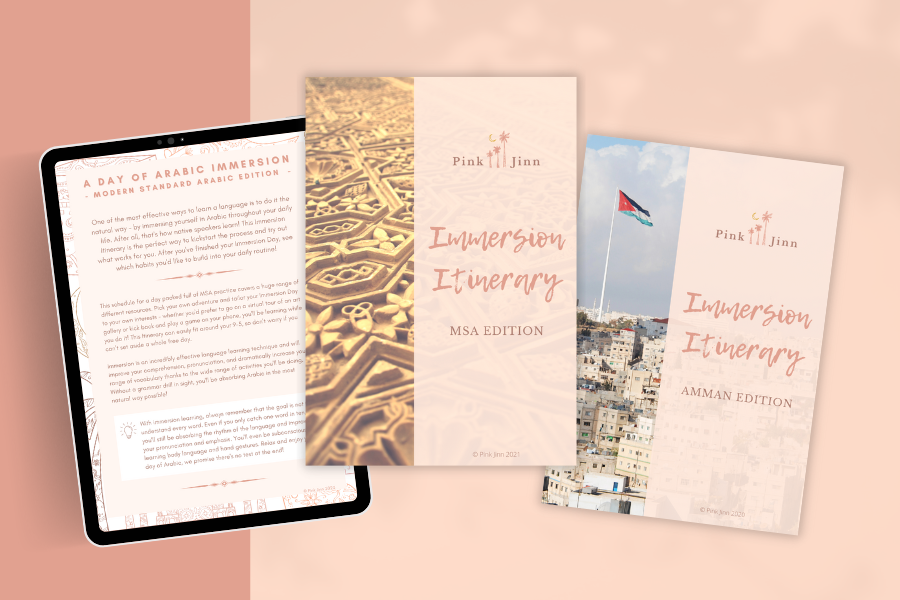
4. Translate video content as you watch with Playaling.
Playaling is the resource that every Arabic student’s dreams are made of. This game-changing platform adds live and interactive captions to a huge catalogue of videos in every Arabic dialect you can think of. Select your dialect, search by level or the theme you’d like to practise and take your pick from their library of brilliant real-world content. You’ll find everything from episodes of Arab Idol to topical interviews, music videos and even weather forecasts!
While you watch, you can hover over Playaling’s interactive captions if you come across a word you don’t know to find its meaning and pronunciation. The Cloze Listen feature checks your listening skills by letting you fill in the gaps as you watch, and some videos even have comprehension quizzes.
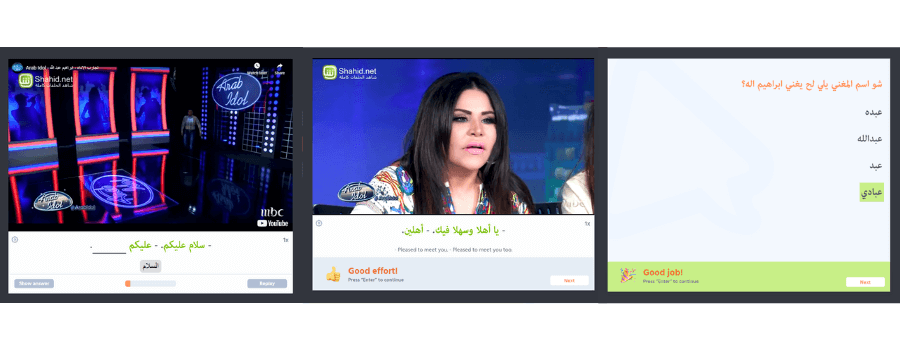
As well as their content in Modern Standard Arabic and Egyptian, Levantine, Gulf, and North African Darija dialects, Playaling also has videos in dialects it can be harder to find resources for, like Iraqi, Yemeni, and Sudanese Arabic. We love Playaling’s focus on entertaining, real-world content and their emphasis on how Arabic is actually spoken in daily life.
Playaling is currently offering Pink Jinn readers an exclusive extended free trial using the code ‘PinkJinnExtendedTrial’!
Enter the coupon code when you sign up to extend your free trial period to two weeks. Alternatively, you can sign up for the standard one week trial and email Playaling quoting ‘Pink Jinn’ to claim your extra week. This sign-up bonus is valid until October 1st 2023 – get your two week free trial here! (We don’t take a commission – we just think they’re fantastic!)
5. Figure out your learning style.
Make all those hours of practising Arabic count by ensuring that you’re working to your own strengths, using methods that work with your own unique learning style. For example, if you are an auditory learner and you absorb spoken language much faster than written language, ditch the flashcards and try making yourself recordings of the vocabulary you need to master. If you find yourself getting frustrated with your rate of progress using traditional classroom methods, stop using them and experiment to find out how your brain works best!
If you aren’t quite sure what kind of learner you are, this free questionnaire from the University of Connecticut will help you figure it out! It only takes a couple of minutes, and there are also plenty of tips once you’ve found out your learning style – visual, auditory or kinesthetic.

6. Set up your routine to make learning Arabic an integral part of your week.
The hardest part of learning Arabic is getting started, and this especially applies if you’re learning from home, without fixed class times or deadlines to force you to get to work! Figure out strategies and techniques to build Arabic into our daily routine, like habit stacking – linking a new habit with one that’s already part of your day, adding visual prompts to your space to remind you to study, or coming up with a reward system to encourage your brain to stick with it.
7. Make it a ritual.
Make learning Arabic part of a routine that you love, by turning your study sessions into a regular ritual which you look forward to! Set up a specific space to study that inspires you, brew yourself a cup of qahwa or shay, light a candle or listen to a playlist you love as you work. That way, you’ll train your brain to associate studying with things that make you feel good!
Bonus – studies show that when your brain associates a certain taste with a set of information, it can improve your recall. For example, if you always sip a cup of qahwa as you practise your vocabulary, the taste can actually boost your ability to remember the words you learnt the next time you sit down to study!

8. Curate your own bank of resources.
As much as we love Duolingo (and despite our long time love-hate relationship with Al-Kitaab – IYKYK), they don’t quite do the job on their own. One of the things that makes Arabic both so rewarding and challenging to learn is the amount of self-driven organisation and learning it requires.
From your dialect choice to the situations where you’ll use it, it is very rare that one resource will teach you everything you’re looking for on your unique journey with Arabic. A student learning Maghrebi Arabic for travel will need a vastly different set of resources to someone learning Modern Standard Arabic to read and write academic papers or business reports!
Putting together your own tailored bank of resources will help make learning Arabic a personal and deeply rewarding experience driven by your own specific interests and goals. Make sure you’re signed up to our private Facebook group for Arabic Learners, where we share lots of resources to get you started building your own, personal resource bank!
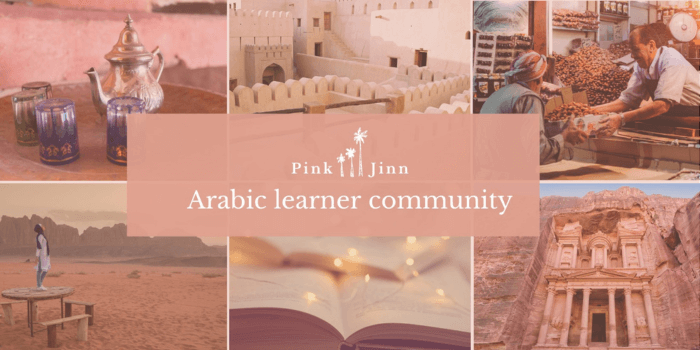
9. Master the root system and harness its power!
One of the best things about Arabic is its root system, and it really pays to get familiar with it. Most words in Arabic are based on three or four ‘root’ letters, which together carry an association with a broad meaning or concept. Using the root system will allow you to figure out the meaning of many, many related words which use those same three or four consonants – sometimes dozens of words!
Harnessing the root system as you learn vocabulary will help you make rapid progress, as you can learn entire families of semantically related words in one go. Becoming confident with the root system will also help you to decipher any unfamiliar words you come across and to use Arabic dictionaries easily and efficiently – a triple win!
10. Find or create opportunities to practise your speaking skills.
It can be tricky to balance active and passive skills when you’re learning a language, and many learners have more opportunities to practise passive skills like vocabulary building or listening comprehension than to work on active skills like speaking. To make sure you’re building in active learning, look for a language partner, join a language exchange programme (see NaTakallam below!) or try out an app like HelloTalk or Tandem. Remember, the best way to build your confidence in speaking Arabic is to just jump right in!

11. Look for high-quality support.
If you feel like you’ve hit a plateau or could do with some extra help, it’s easier than ever to find the support you need with Arabic no matter where you are in the world. We absolutely love NaTakallam, whose online teaching, tutoring and cultural exchange partnership services are provided by displaced persons and their host communities.
NaTakallam works with displaced communities from Syria, Iraq, Yemen, Palestine, Egypt and Lebanon, so it can offer a huge range of specialist teachers and tutors across many Arabic dialects. As well as tutoring, NaTakallam offers formal courses in Arabic, and they have even launched an Arabic course especially for Francophone students. NaTakallam is currently offering a free trial lesson for new users, so why not try it out!
12. Go beyond the language!
Studying Arabic is about so much more than just learning conjugations and new vocabulary.
Learn about music, history, politics, Islamic art, food, calligraphy, dance, Middle Eastern cinema, or whatever floats your boat! In our experience, going beyond the language itself is one of the key things which differentiates the students who stick with Arabic long-term and who really enjoy their Arabic studies. This is one of the most rewarding aspects of learning a new language, so make sure to let yourself fall in love with Arabic rather than just studying it!
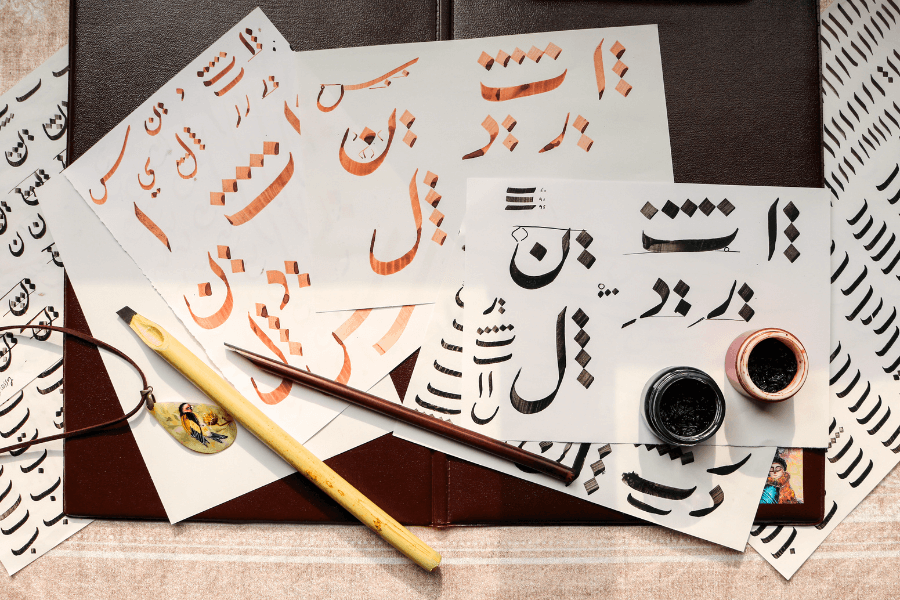
If you liked this article, you may also enjoy:
Which Arabic Dialect Should I Learn? Spotlight on Levantine Arabic
10 Ways to Boost Your Arabic in 2022
Instagram Accounts to Follow If You’re Learning Arabic – Part One



